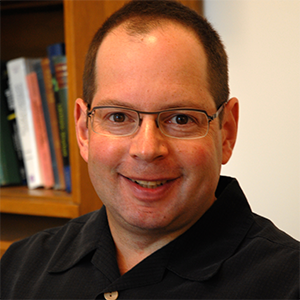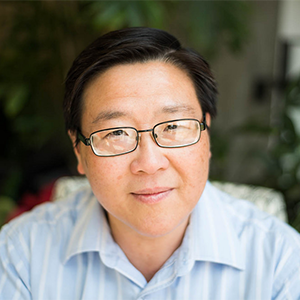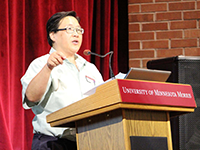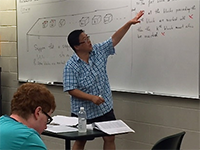Spotlight on Perry Leo

Leo, who grew up in upstate New York, worked himself through the ranks of the faculty at the University starting as an assistant professor in the fall of 1988. His research focused on advanced materials, or more precisely (in layman’s terms), “how different materials blend together to form new materials.” Though offered a position in a government research lab, Leo chose the diversity of academia over a pure research career. He always wanted to work at a Big Ten university, or something comparable to a Big Ten university, because he “like(s) the fact that we are really trying to educate the people in the state and surrounding states. And being at a big school allows us to do different things.” One of those different things for Leo has been participating in shared governance.
Leo served as a representative in the Faculty Senate from 1995-1998. He first began committee work – which he finds more fruitful - in 2002 on the Faculty Academic Oversight Committee for Intercollegiate Athletics (FAOCIA). “Art Erdman from Mechanical Engineering knew I golfed. That was athletic enough [for me] to be appointed,” he quipped. Leo currently serves as Faculty Athletics Representative to the Big Ten and NCAA. In this role he also serves on the Advisory Committee on Athletics and (again) on the FAOCIA. Additionally, he serves on the ROTC subcommittee and has served on the Committee on Committees (with one term as chair).
The moment that Leo felt the most satisfied with his contribution to Senate work was in his initial years on the FAOCIA, soon after the basketball program scandal in 1999. Through the actions of committees, the Senate was able to move the pendulum back to assure the “relationship between the athletic departments and academic departments was a good one” while maintaining necessary firewalls between the two. He added that Senate action assured a level of academic integrity that has maintained to this day.
Leo is one of the small handful of seasoned faculty whose continued participation contributes to the institutional memory that serves committee work so well. As he said, he’s not looking to build his resume at this point. He, and other long-serving faculty, truly have the good of the institution at heart. But Leo also believes that more faculty should participate, so that we don’t hear from the same voices year after year. Leo considers it “integral that new faculty are included and recognized in governance, so that it continues to work as well as it has for so many years.”
In other words, Leo has fully embraced the traditional idea of a university: a place where all participants are engaged not only in learning, but also in active discussion and decision-making regarding the direction the institution should take. Sacrificing a serviceable handicap is worth it for him. But his involvement in shared governance is not solely altruistic. He also said that “it’s fun to get to know faculty from outside my department and college. This is and has been the best part of governance.”


